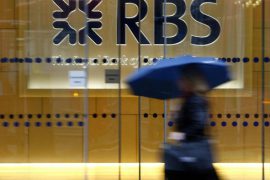Monday will give the first hints on the future shape of the UK banking sector, when the Independent
Commission on Banking (ICB) delivers its interim report to the government – though some analysts
are already predicting that Barclays bank could be the hardest hit by the likely changes.
Although full details of the ICB’s recommendations won’t be known until Monday, most experts
expect the Commission’s report to recommend enforced separation of British-based banks’
investment banking and retail operations, often referred to as “ring-fencing”. Around 55 per cent
of fund managers and market analysts surveyed by global news agency Reuters believed Barclays
would have the most to lose if the expected reforms are put in place.
Separating retail and investment banking operations would be intended to protect ordinary savers
from the market risks involved in investment banking, ensuring that core retail banking operations –
mainly personal banking and small business banking services – could continue to operate even if the
investment banking subsidiary were to fail.
However, such restructuring would mean higher operating costs and stricter capital requirements
for financial institutions with larger investment banking operations. Of the major banks, Barclays
Capital division (BarCap) is significantly larger than similar departments at HSBC, Royal Bank of
Scotland or Lloyds Banking Group.
Investment brokerage Evolution Securities commented that: “If the ICB recommends a high degree
of separation, the market will react negatively given costs involved. An increase in funding cost
seems inevitable.”
It added: “As an example, BarCap has around £100 billion of wholesale debt – if the cost of funding
for BarCap was to increase by say 100 basis points due to this, the impact could be £1 billion after
tax.”




